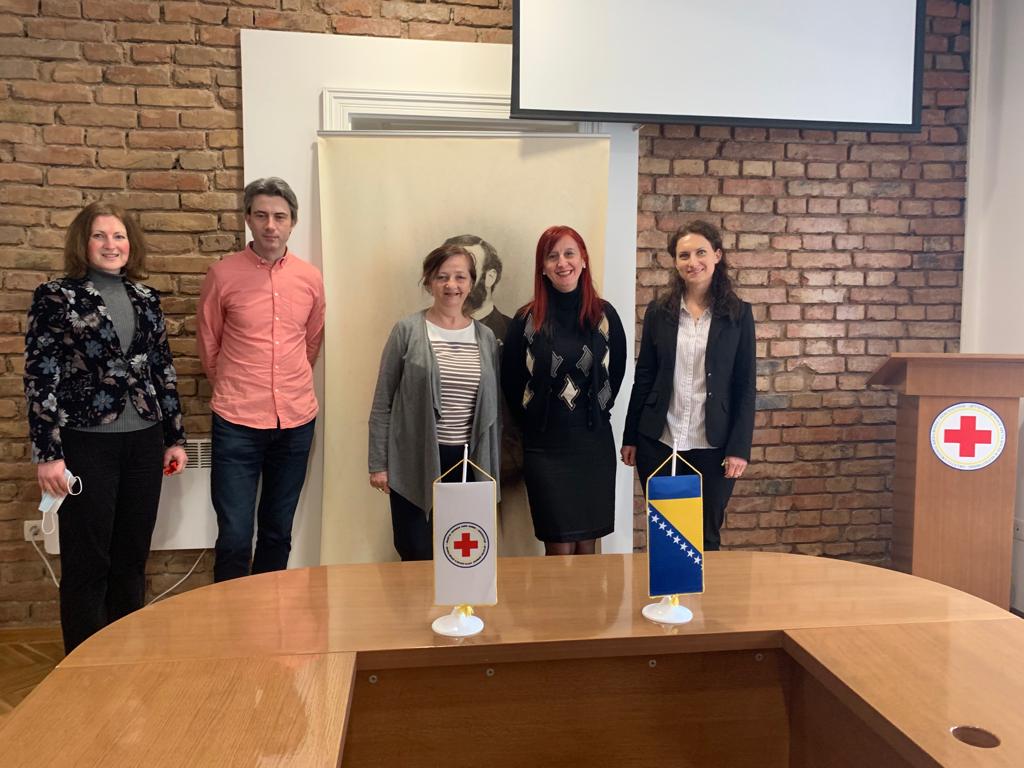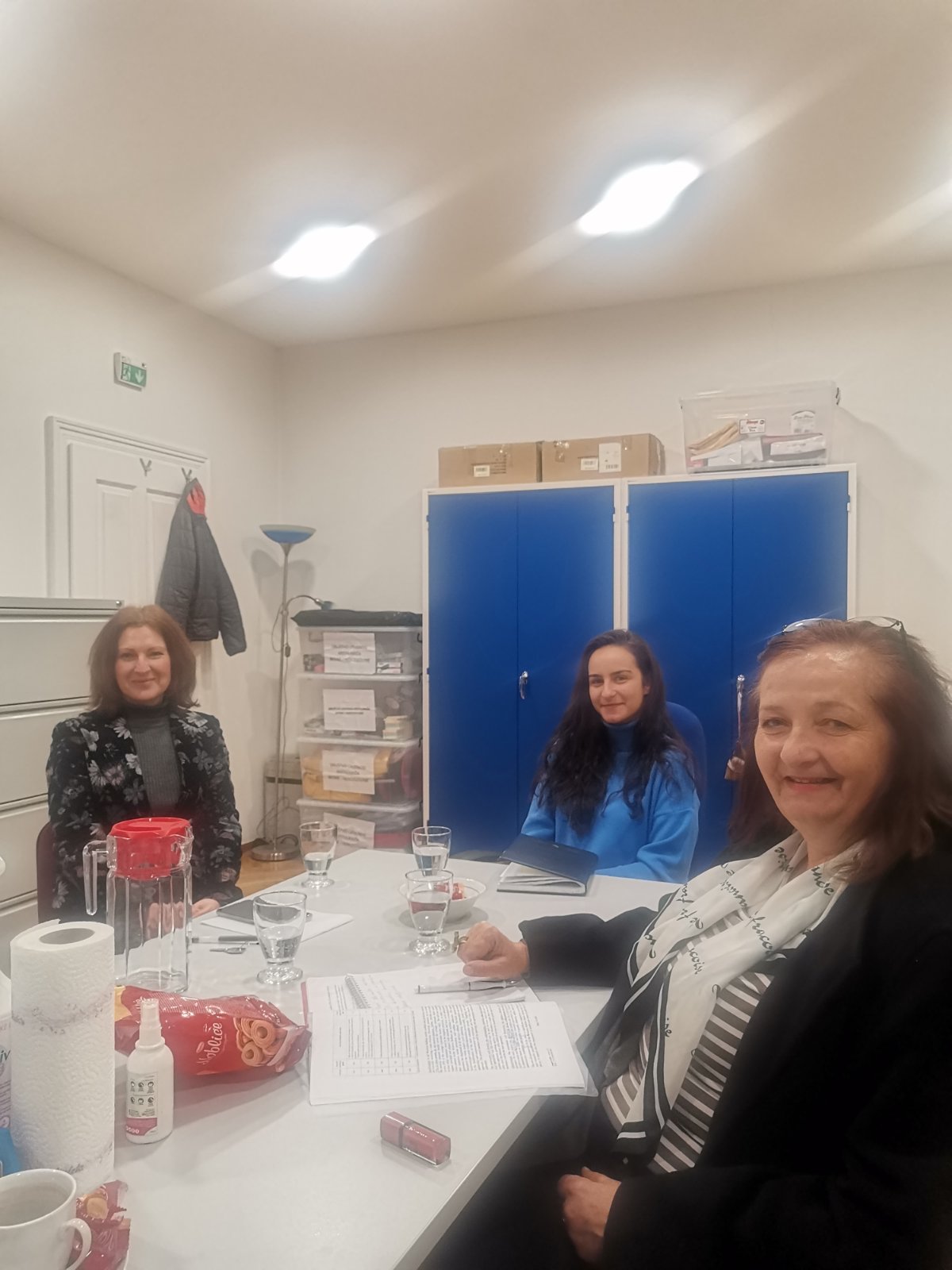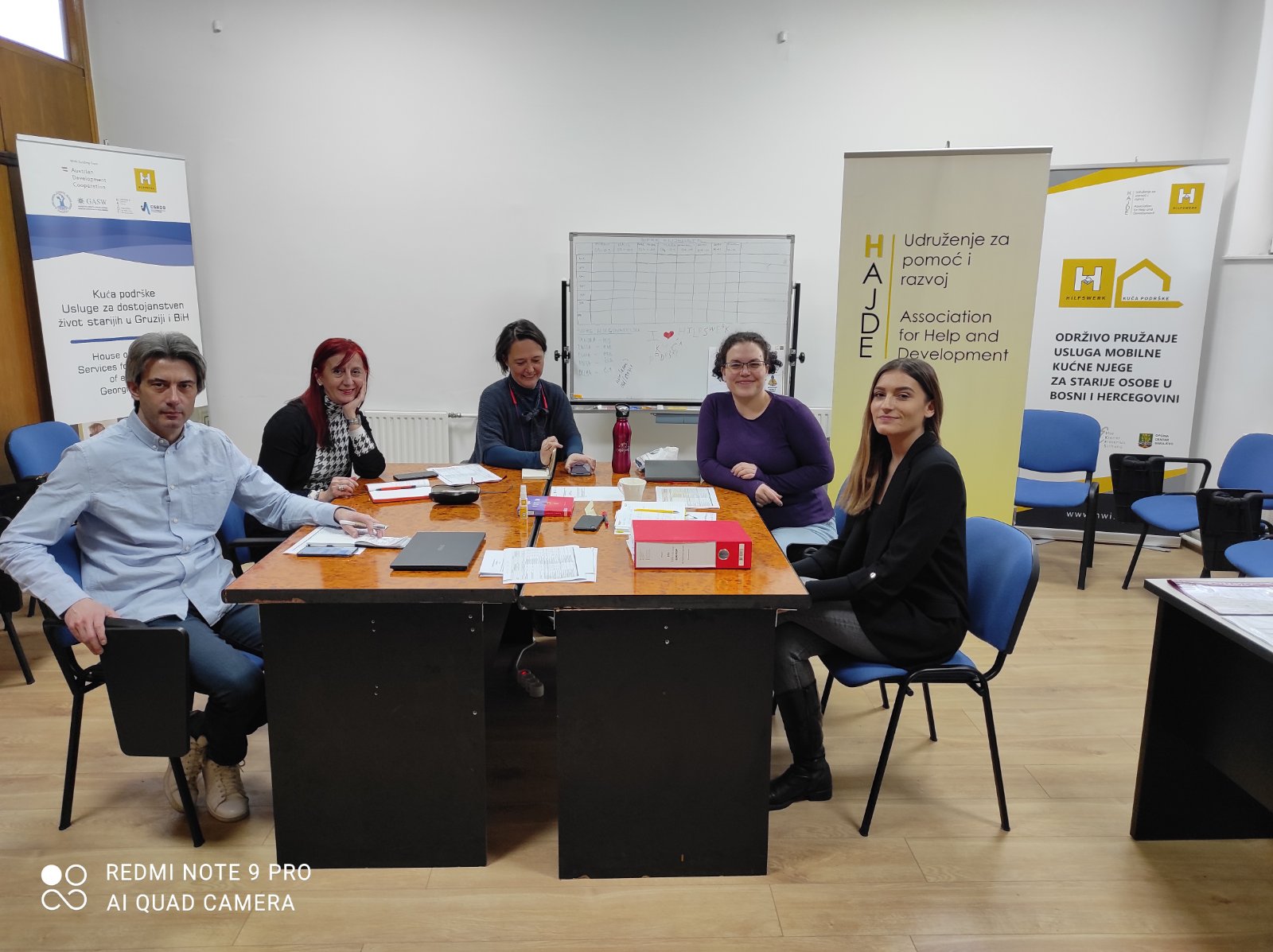Monitoring visit to partners from Bosnia and Herzegovina within the project “Strengthening the resilience of older persons and persons with disabilities during the COVID-19 crisis and future crises”

In the period from 14 to 16 February, representatives of the Red Cross of Serbia were in a monitoring visit to the partners of the Red Cross Society of Bosnia and Herzegovina and the Association Hajde.
Natasa Todorovic, coordinator of the project “Strengthening the resilience of older persons and persons with disabilities during the COVID-19 crisis and future crises” and Dr. Milutin Vracevic had a meeting with the Secretary General of the Red Cross Society of Bosnia and Herzegovina Rajko Lazic during the first day of the visit as well as with associates of the National Society who participate in the implementation of project activities.
At the meeting with Mr. Lazić and the project team, the achieved results and planned activities in the second year were discussed, as well as the challenges. During the visit, all segments of the project were discussed, as well as the importance of standard operating procedures that are being developed and that need to be improved in order for the assistance to be best directed and reach those who need it the most. Special attention is paid to the work of telephone support centers that are important for improving the mental health of older persons and persons with disabilities. Deterioration of mental health, especially among people who otherwise belong to potentially vulnerable groups, is one of the significant negative effects of the COVID-19 pandemic, so a meeting was held with the helpline coordinator in Brcko.


On the second day of the visit, representatives of the Red Cross of Serbia visited the Association Hajde, which is implementing a part of the project related to advocacy for the introduction of long-term care services. This advocacy will be important for improving the quality of life of older persons and persons with disabilities in Bosnia and Herzegovina. The second component implemented by Hajde is psychological first aid and psychosocial support, within which trained psychology students volunteered on telephone lines. The main conclusion is that older persons are currently motivated for the second part of the project, which will start later this year, and which includes direct support through activities of healthy aging. This project is implemented with the support of the European Union and the Austrian Development Agency.
